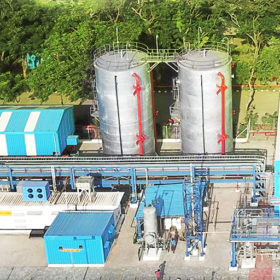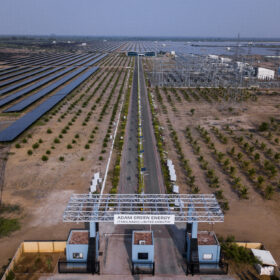The increase in imported solar module prices is likely to impact the returns of solar power project developers. Module prices have increased by about 15-20% over the last 4-5 months to around 22-23 cents/watt as of date. This price rise has been mainly driven by a sharp increase in the price of polysilicon, a key input for cell and module manufacturers.
As per an ICRA note, such hardening in the price of PV modules, if sustained, remains a near-term headwind as a majority of solar power installations in India are dependent on PV module imports. This risk is especially significant for about 4 GW capacity won by developers through the bidding route over the last six to nine months at tariffs ranging largely between INR 2.00/kWh (US$ 0.027/kWh) and 2.25/kWh (US$ 0.031/kWh) and is scheduled to be commissioned over the next 12-15-month period. This apart, the recent surge in metal prices is also leading to upward pressure on the overall capital cost for solar power projects.
Girishkumar Kadam, senior vice president and co-group head-Corporate ratings, ICRA, expects a 12-14 basis point impact on the debt service coverage metrics for the project developers.
“Given that the PV module component comprises about 50-55% of the overall project cost, such increase in the module price level by about 4-5 cents/watt if sustained, is likely to moderate the debt service coverage metrics for the project developers by about 12-14 basis points,” he said.
Tariff increase
Kadam sees bidding tariff increase by about 55-60 paise/unit in upcoming auctions as developers try to offset the impact of the module price rise due to shortage of raw material supply and the basic customs duty.
“The tariff increase required to offset such a module price increase is estimated at about 20-22 paise/unit. This, along with the impact of the basic customs duty (BCD) on imported PV modules, is likely to result in the overall bid tariff to increase by about 55-60 paise/unit for the forthcoming auctions.”
Nonetheless, he expects the solar bid tariff to remain below INR 3/unit even after factoring in this dual impact.
The BCD notification for cells and modules is effective from April 2022 onwards. This fuels the possibility of a surge in module imports, particularly in the fourth quarter of the current fiscal, and, in turn, supporting the elevated price levels for PV modules.
In this context, both the module price behavior and honoring of supply contracts by module OEMs from China in the near term continue to remain key monitorable for the solar power developers, stated ICRA.
ALMM impact
As per a notification issued by India’s Ministry of New and Renewable Energy (MNRE), the solar projects bid out under the standard-bidding guidelines, post April 10, 2021, are required to procure modules from the Approved List of Models and Manufacturers (ALMM) issued by the ministry.
However, the registration of module manufacturers outside India has remained affected due to the lockdown restrictions and procedural requirements so far, as evident from the ALMM list issued in March 2021.
This, in turn, may pose near-term challenges to the Indian developers in the procurement of imported PV modules, especially given the capacity constraints for domestic manufacturers.
Vikram V, vice president and sector head-Corporate Ratings, ICRA, added, “The uncertainty on the timelines for inclusion of module suppliers from China in the ALMM list may affect the incremental bidding activity in the solar power sector. Nonetheless, cumulative solar project awards as of date remain strong at around 28 GW (excluding the capacity pending for signing of power sale agreements/power purchase agreements and including hybrid projects), which provides healthy visibility on the capacity addition over the medium term.”
This content is protected by copyright and may not be reused. If you want to cooperate with us and would like to reuse some of our content, please contact: editors@pv-magazine.com.








2 comments
By submitting this form you agree to pv magazine using your data for the purposes of publishing your comment.
Your personal data will only be disclosed or otherwise transmitted to third parties for the purposes of spam filtering or if this is necessary for technical maintenance of the website. Any other transfer to third parties will not take place unless this is justified on the basis of applicable data protection regulations or if pv magazine is legally obliged to do so.
You may revoke this consent at any time with effect for the future, in which case your personal data will be deleted immediately. Otherwise, your data will be deleted if pv magazine has processed your request or the purpose of data storage is fulfilled.
Further information on data privacy can be found in our Data Protection Policy.